Where have all the vegan restaurants gone?
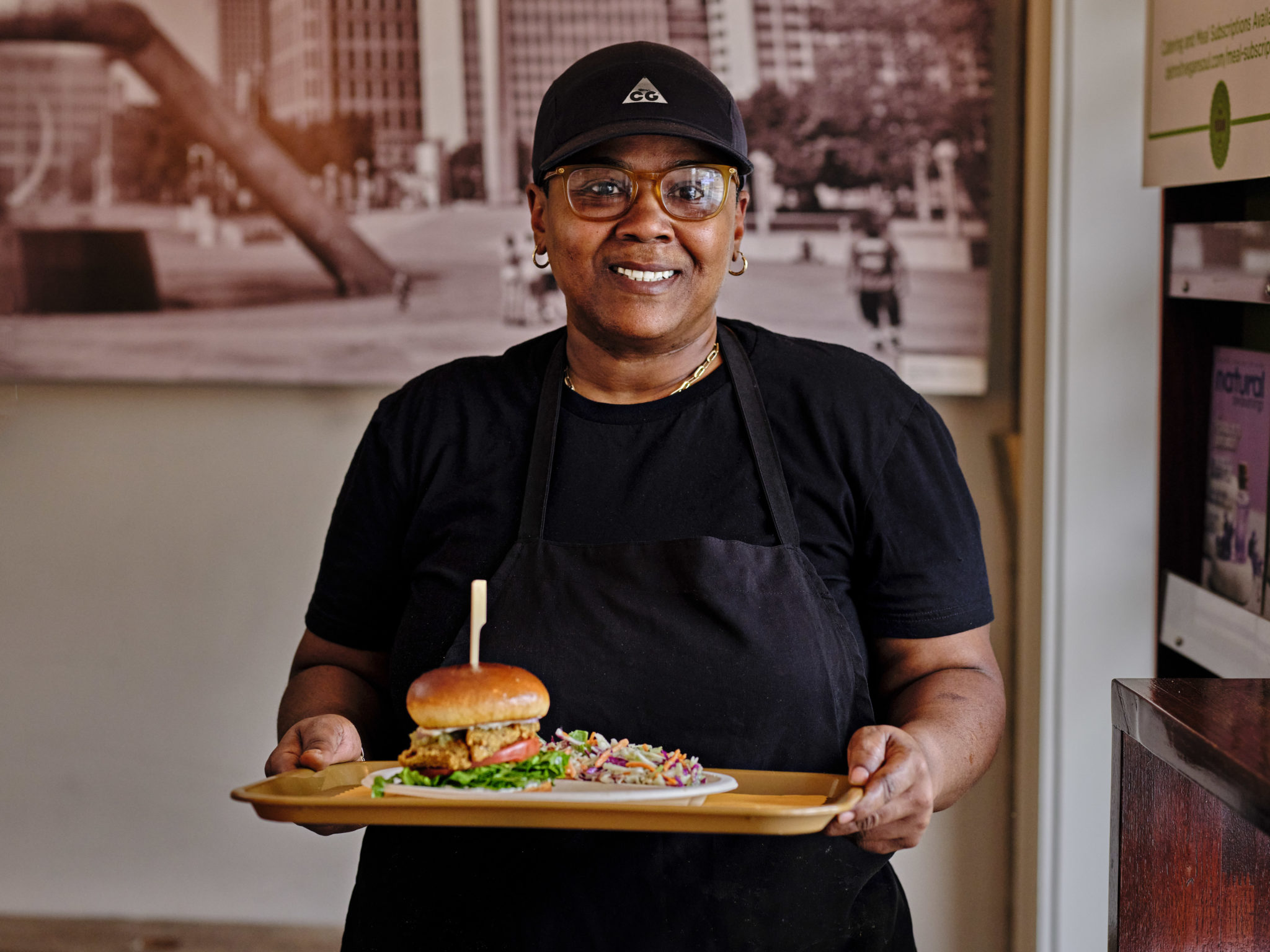
Photos by Joe Vaughn.
Detroit Vegan Soul chef-owner Erika Boyd begins her days early, loading her car with fresh ingredients from local purveyors to ensure the freshest quality.
She then hauls those ingredients to her North Rosedale Park restaurant, where she turns raw plants and whole grains into fan favorite house-made veggie burger patties and tofu “catfish” sandwiches, some days doing double the prep because of a large catering order or a vegan cake that needs to be shipped out of state.
After unlocking the front door, Boyd turns on the kiosk that greets customers and heads back to the kitchen to begin fulfilling orders that have already come in online. As guests enter, she pops her head out of the kitchen to greet them, directs them to order at the kiosk, answers any questions, then heads back to continue cooking and packaging.
It’s a one-woman operation at Detroit Vegan Soul these days, and Boyd handles everything from start to finish.
At the end of the shift, she locks up, makes a game plan for the next day, and begins all over again — a true labor of love.
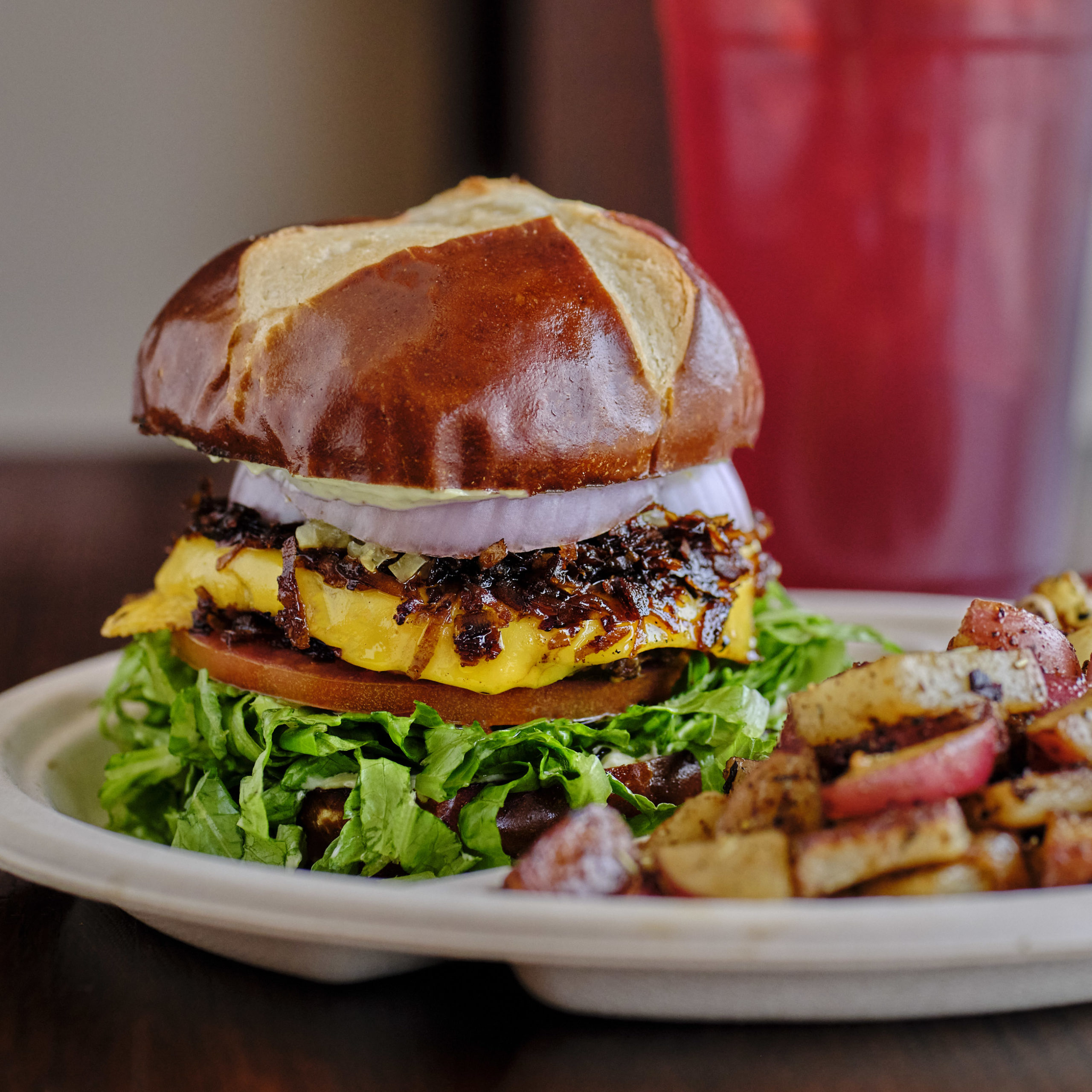
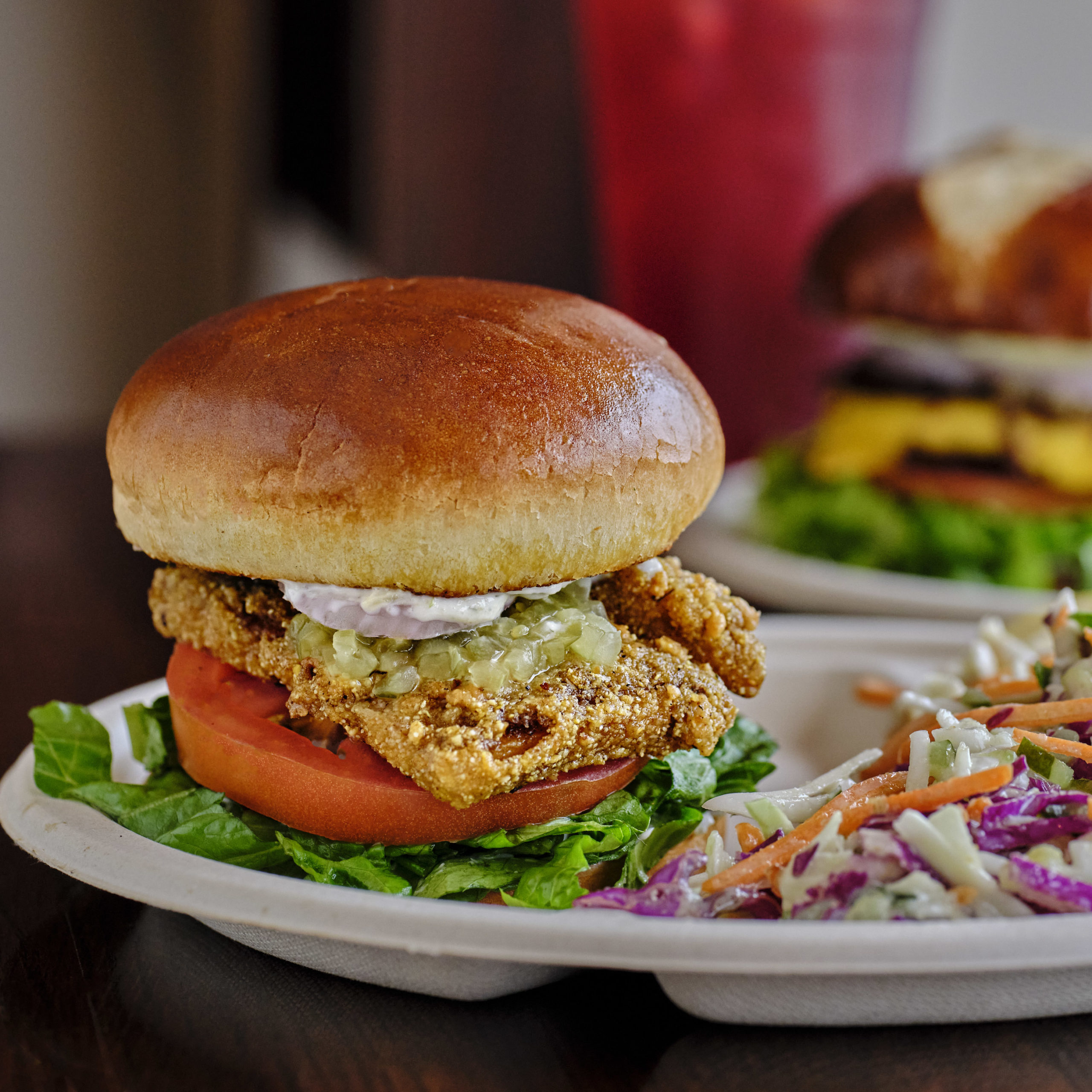
The rise and fall of the vegan restaurant
Often cited as one of the go-to vegan restaurants on PETA’s annual list, Detroit Vegan Soul has been a flag bearer for what was until recently a thriving vegan scene in Detroit.
In 2013, Boyd and partner Kristen Ussery opened their first brick-and-mortar in the city’s historic West Village neighborhood, at the time becoming Detroit’s only 100% plant-based soul food restaurant. Their mission: to help people live healthier lives and revitalize the commercial viability of the neighborhood.
From the early success of that first outpost, they saved enough to buy a building in North Rosedale Park four years later.
But the COVID-19 pandemic hit restaurants especially hard. Ussery and Boyd had to rethink their business model as they faced staff shortages and a decline in revenue. In December 2021, they closed the flagship West Village restaurant and moved all operations to the sister location.
What was once a bustling community space has since adapted to become a one-woman show that still offers scratch-made plant-based versions of Southern soul food.
“We have people that come on a daily basis,” says Boyd. “There are people that depend on Detroit Vegan Soul because they know we promise to provide 100% plant-based comfort food they can trust. Our customers know we’re providing something authentic that aligns with the dietary requirements and the lifestyle they’re trying to live.”
Over the past year, many of metro Detroit’s prominent vegan restaurants have downscaled or shuttered altogether. Around the same time that Detroit Vegan Soul closed its original location, so, too, did Karen Kahn’s Nosh Pit, a food truck turned Hamtramck institution that moved to Royal Oak in 2021 before running out of proverbial gas. Additionally, the popular vegan junk food pop-up Street Beet vacated its Third Street Bar residency and permanently called it quits, as did Plymouth’s Shimmy Shack and Ann Arbor’s Vedge Cafe. Chili Mustard Onions, thought to be the nation’s only vegan coney island, announced it would also be closing before the end of the year despite a recent appearance on the Today show and a personal shoutout from Al Roker.
Detroit’s vegan restaurants face challenges that parallel others within the industry — low margins, long hours, rising food costs, labor shortages — while operating with a smaller window of customers.
And while veganism’s crossover into mainstream culture over the last two decades has led to a bevy of plant-based options at your otherwise carnivorous local gastropub or fast food drive-thru lane, that means that same small window of customers now can get their specific dietary needs met elsewhere — almost anywhere.
It all leads one to ask: Are dedicated vegan restaurants even necessary?
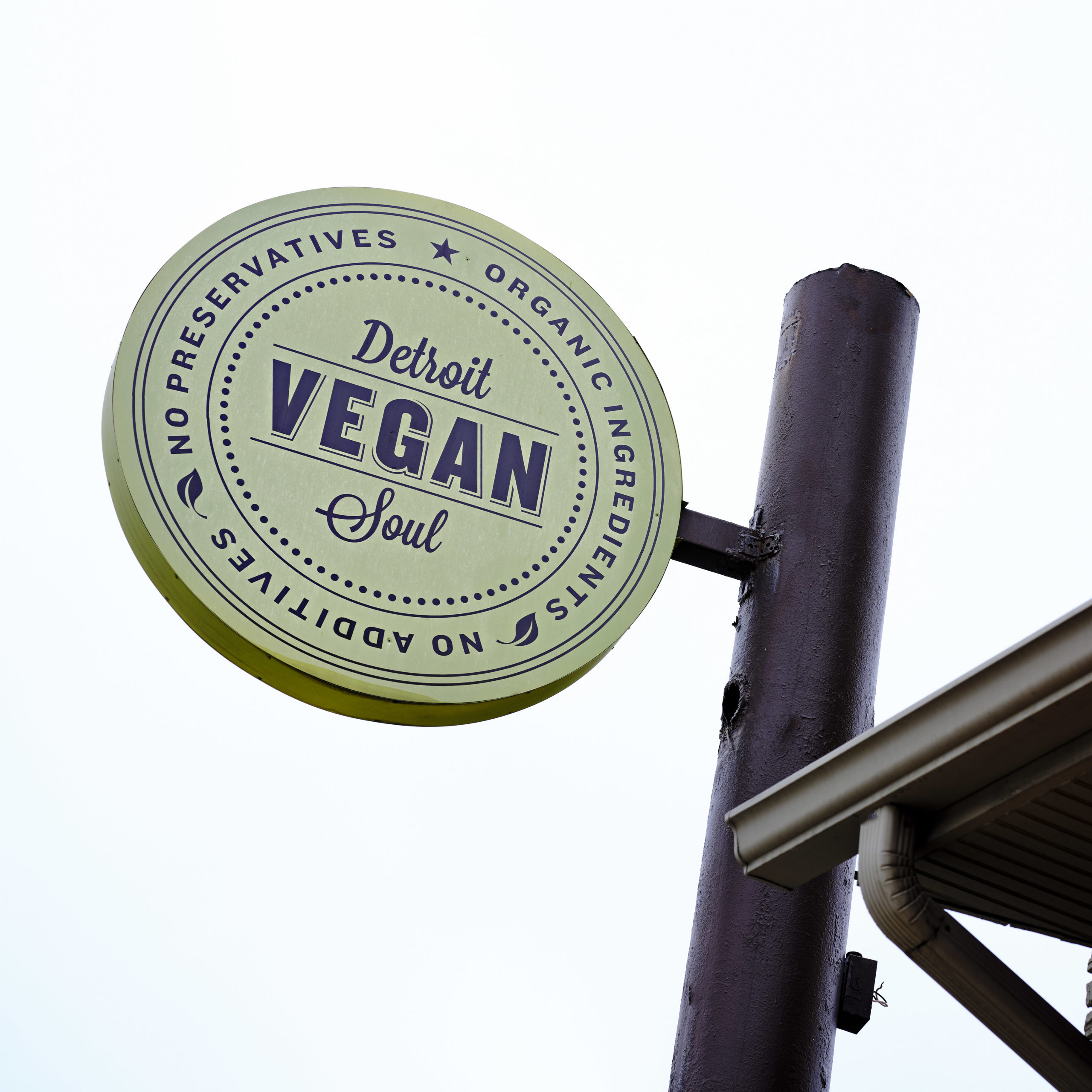
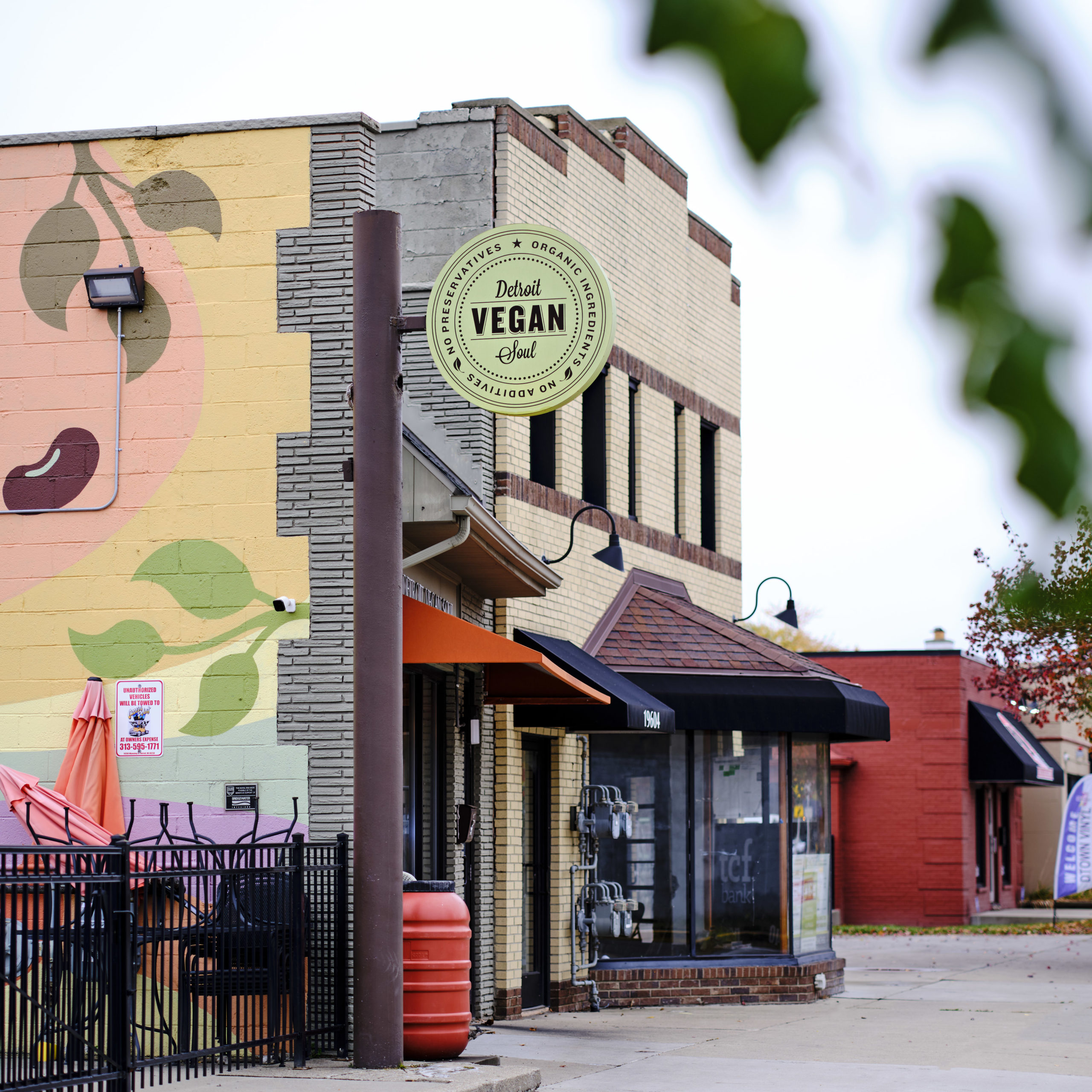
Enter: the scaled-back service model
Detroit Vegan Soul found success in shifting the business model of the North Rosedale Park location to a single operator with a digital platform. A kiosk system was installed for ordering, and hours and operations shifted to a four-day service model. Their online services expanded to include ordering, meal-bundled subscriptions, catering, and nationwide shipping of vegan cakes.
“The kiosk system and taking our ordering platform online has been a real lifesaver, especially in my situation,” Boyd says. “I’m working completely alone, so I don’t have help in the kitchen or up front. It’s just me. This service style allows me to focus on the product, which is the most important part of our business. It’s the part we can still take the most care of and ensure that everything is how we want it to be before it gets into the hands of our community.
“And I can only fill one role at one place, so while we hated letting our other location go, it was necessary for our survival.”
Despite the struggles, dedicated vegan restaurants and pop-ups appear here to stay, even if some look a little different than before.
In the first few months of the pandemic, downtown Farmington’s Chive Kitchen was faced with similar decisions of how to stay open, serve the community, and shift operations from what their loyal customer base had come to know. The vegan restaurant and bar eliminated the restaurant dining experience and shifted to catering events, curating private parties, and introducing the first vegan wine club in Michigan. The business’ new model incorporates a more casual dining experience and operates on a grab-and-go model, where customers can order both online and in person. The new concept was reintroduced with a new name: Chive Deli Catering & Events.
Through innovative adaptation, education, community outreach, and awareness, vegan restaurants, Detroit’s surviving vegan restaurants have created multiple avenues for reaching current and new clientele. The avenue through which they’re providing their services may be unconventional in Detroit’s greater restaurant industry — but it’s keeping doors open, paying bills, and allowing for creatively cultivated experiences that nourish and take care of the community and planet.
No restaurant? No problem
That’s all welcome news for Trap Kitchen’s Dunny Davis.
“I do believe the tides are turning,” says Davis. “They thought veganism was a trend, but here we are. We’re doing the thing. We’re educating our community. We’re reaching out and taking people on a journey through food. And we’re now openly talking about the importance of health and how that affects the city with a history of food trauma.”
Davis’ Detroit-based vegan pop-up took third place in Hour Detroit’s Best Pop-Up Restaurant category last year and is now working to bring vegan cuisine to other cities with chef residencies, co-packed vegan meals, and by educating the community through pop-ups in Detroit and beyond.
One thing not on Davis’ ambitious plant-based growth agenda?
Opening a vegan restaurant.
— By Courtney Burk & Mark Kurlyandchik




